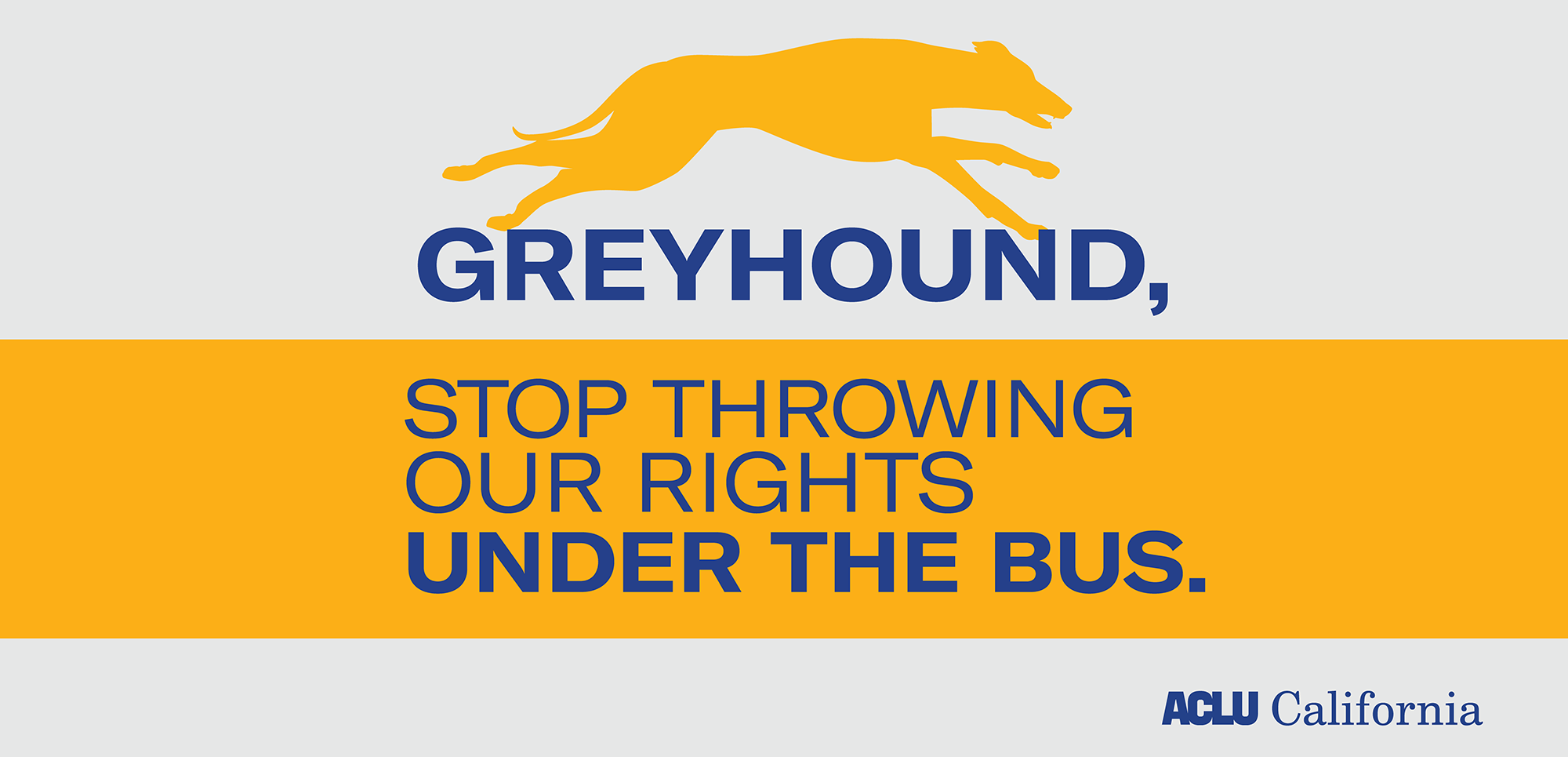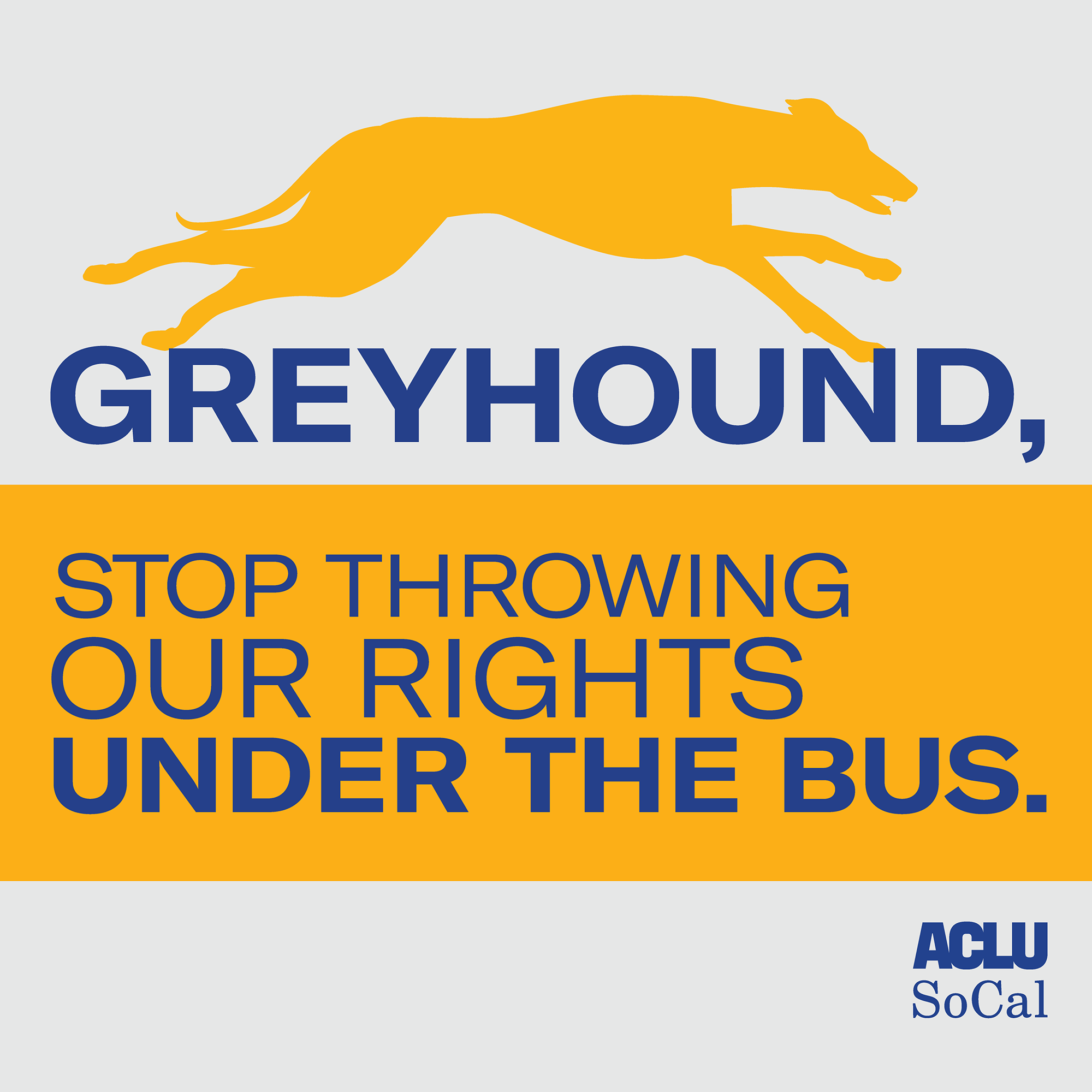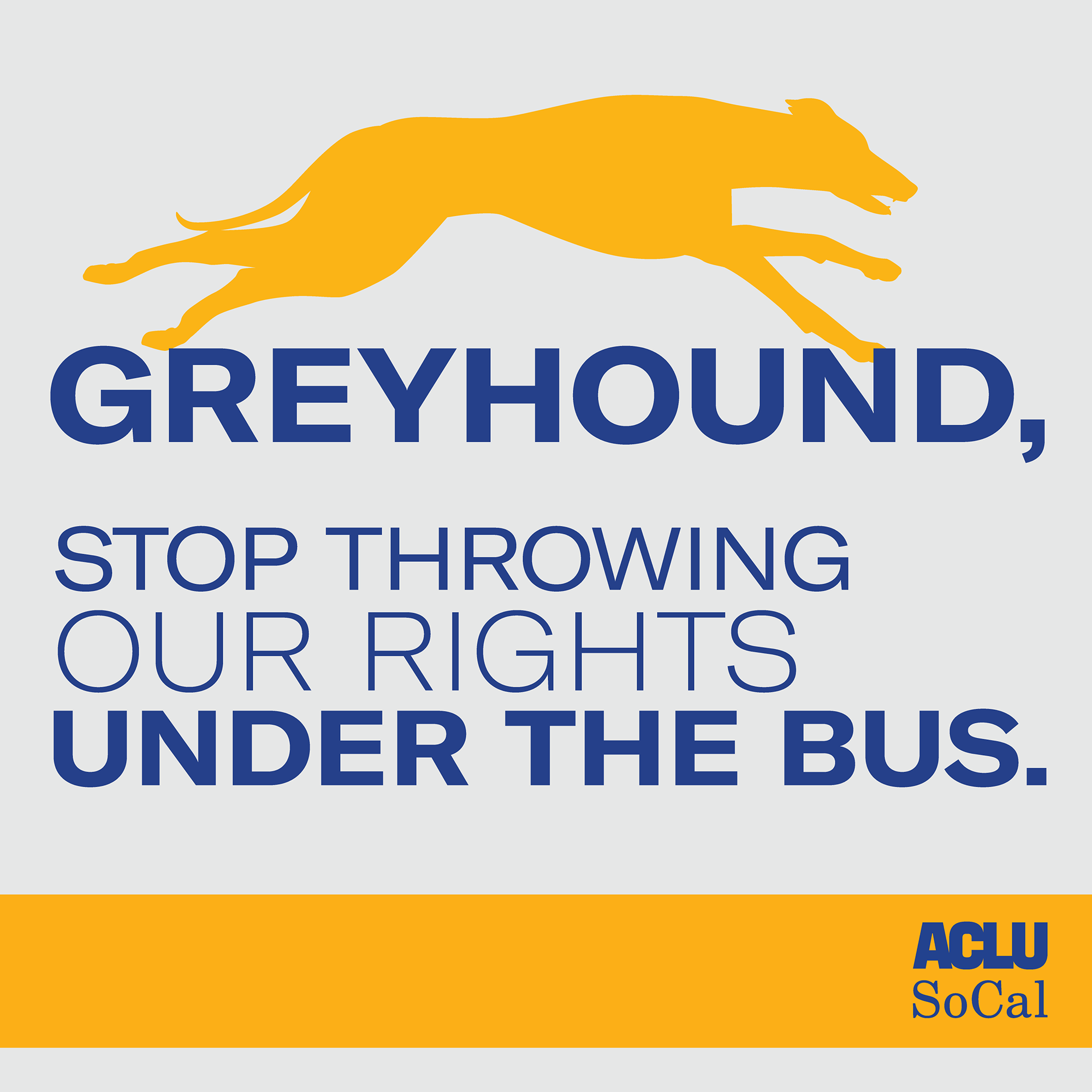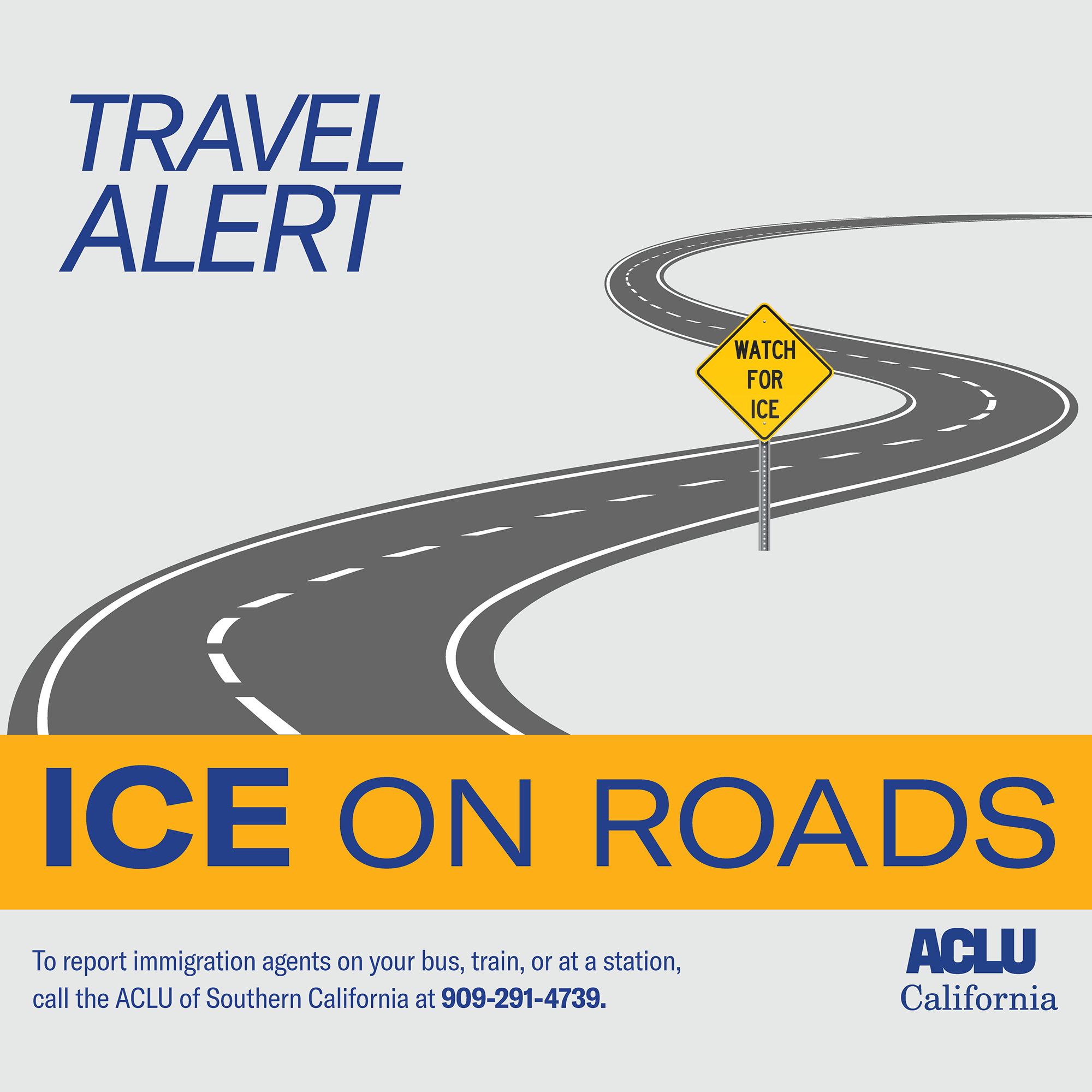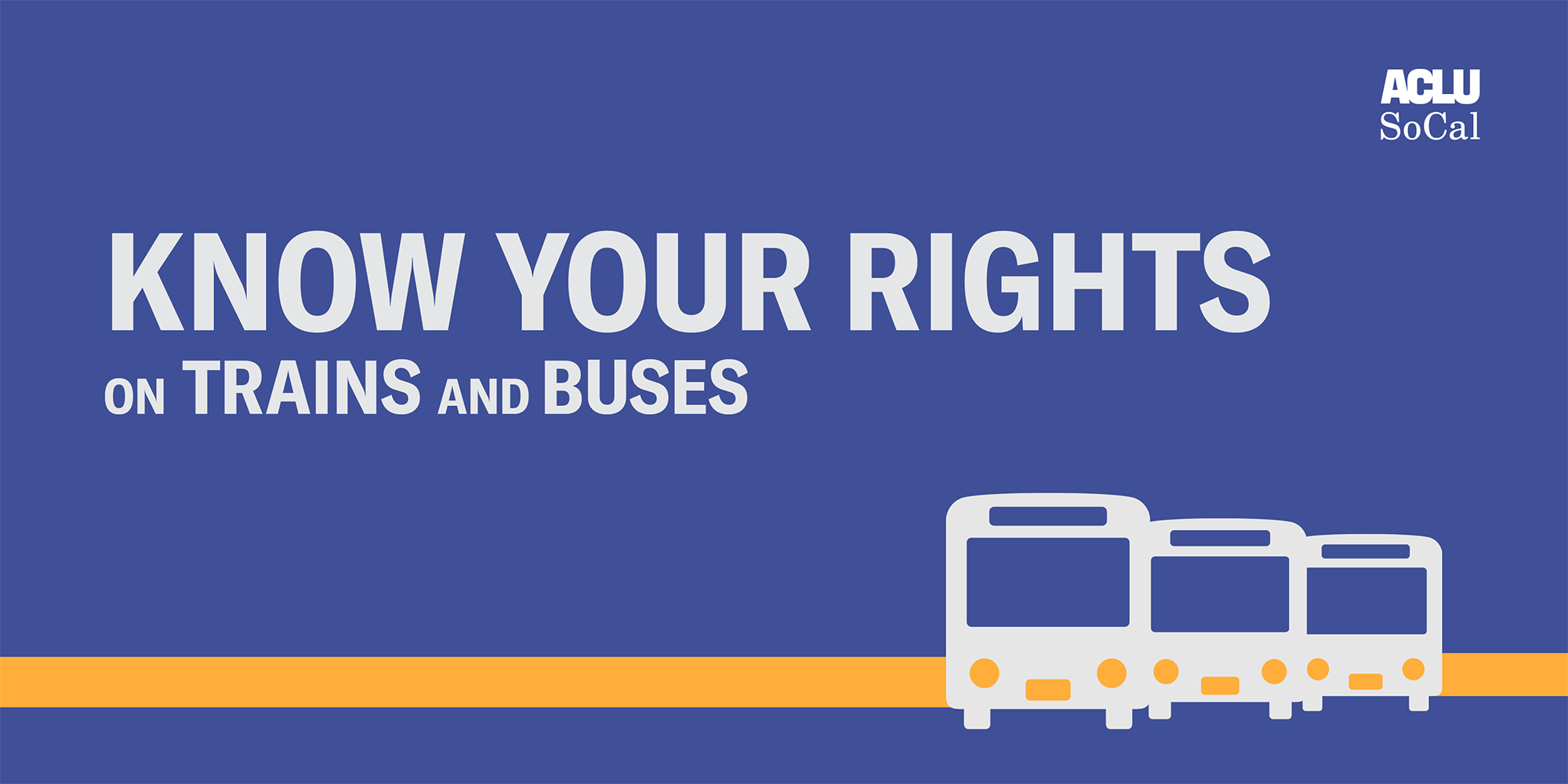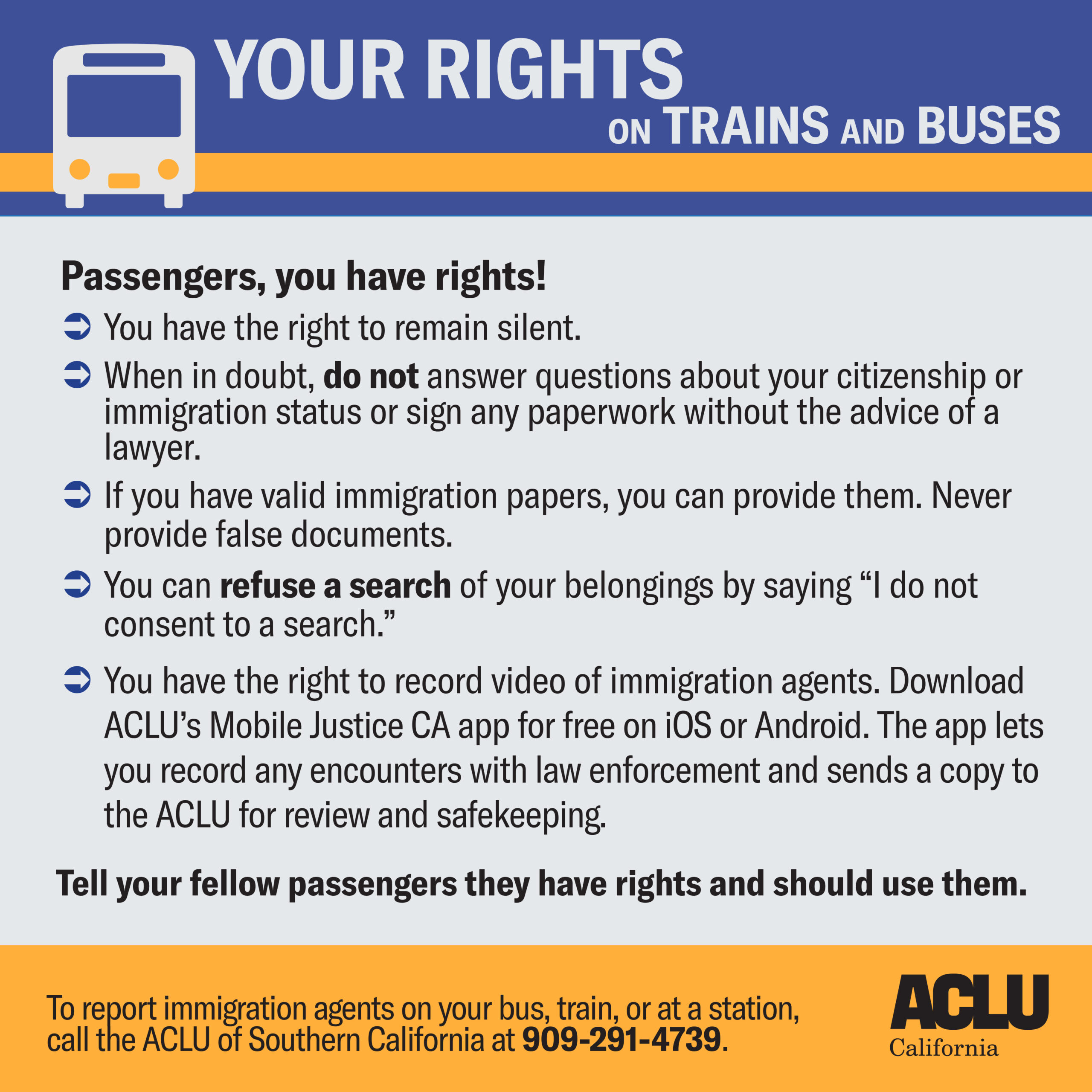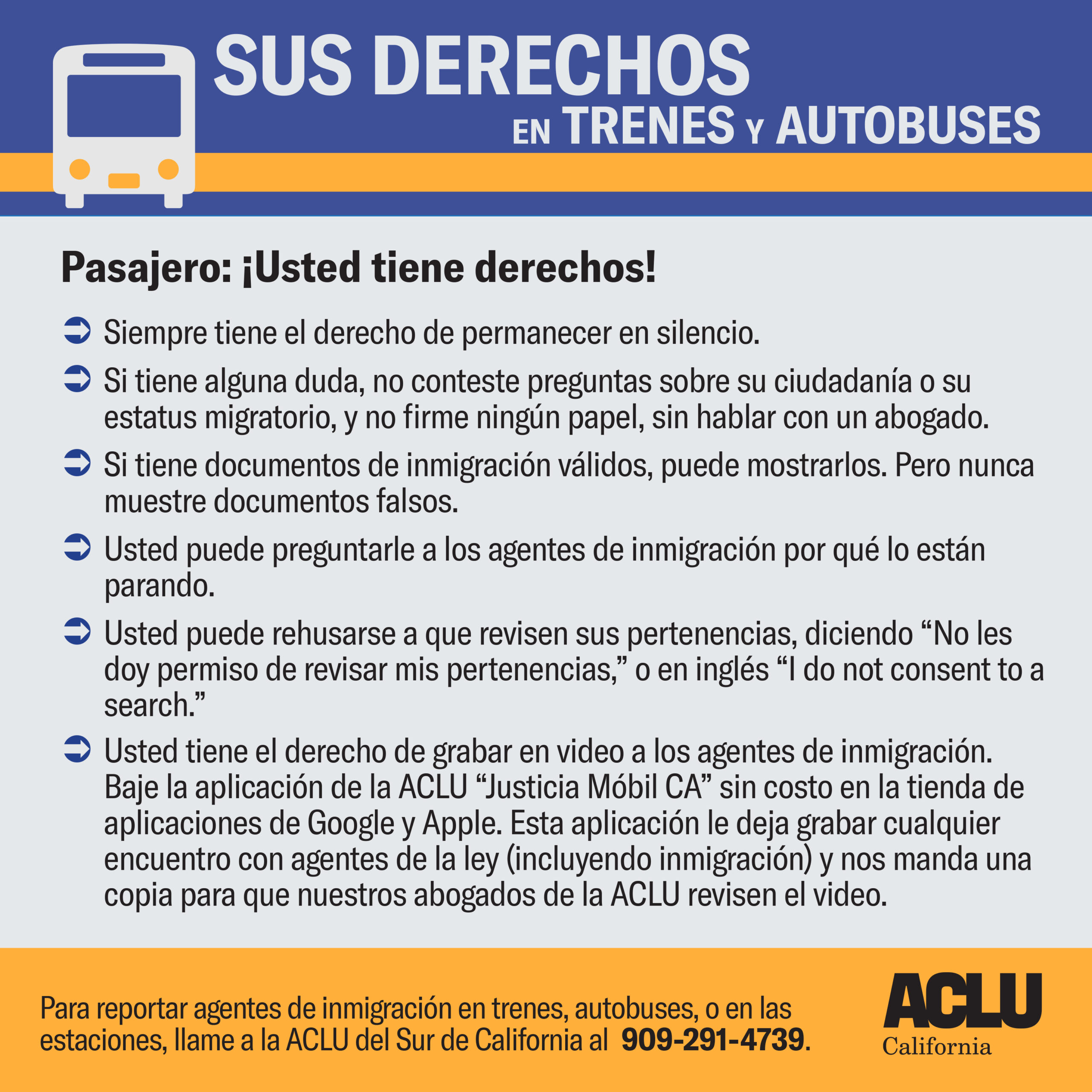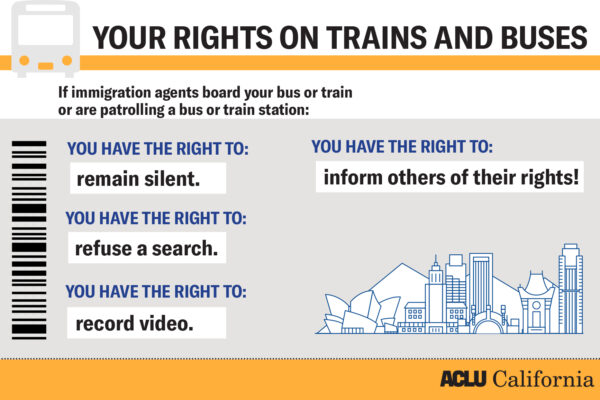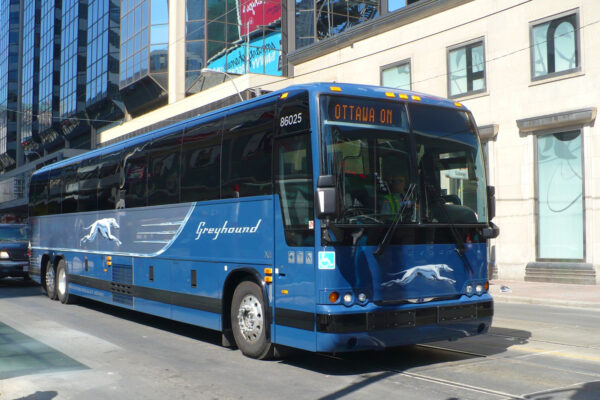Ride With Rights: A Toolkit for Advocates fighting back against Border Protection Access on Public Interstate Transit
As the Trump Administration continues to ramp up its dominant xenophobic narratives, we see the increasing fear in our immigrant communities. We understand that this administration is set on the detention and deportation of immigrants through the augmentation of hired Immigration and Customs Enforcement (ICE) and Customs Border Patrol (CBP) agents. The effects of this increase on enforcement is being documented nationwide. From Florida, Washington, New York and even in California, the number of Border Patrol sightings on public interstate transit continues to increase each passing day.
We at the American Civil Liberties Union (ACLU) believe that every individual’s constitutional rights (whether they are citizens or not) apply when traveling in interstate public transit such as Greyhound or Amtrak. For this reason we are creating a toolkit for advocates like yourself to help community members express their rights and for employees of public transit to know that they are not mandated to let ICE or CBP agents onboard without the necessary legal requirements such as a warrant.
Table of Contents
I. Know Your Rights on Public Transportation with CBP
Passengers: You have rights! Here are some things to remember:
- If immigration agents board your bus, you can remain silent. You are not required to answer any questions about your citizenship or immigration status and can refuse to do so.
- A person without lawful status in the United States should never answer questions about their immigration status without first consulting with a lawyer. Any voluntary statement made to CBP can and will be used against that person to deport them.
- Though not required, a person with valid immigration papers can provide them to avoid arrest or detention. But never provide false document
- You always have the right to remain silent.
- You can refuse a search of your belongings by saying "I do not consent to a search of my belongings."
- You can ask Border Patrol why they're stopping you.
- You have the right to video record the immigration agents. Download the ACLU's Mobile Justice CA app for free on the Google Store and Apple Store. This application lets you record any and all encounters with law enforcement and as a result sends a copy to the ACLU for review and safekeeping.
- Tell your fellow passengers they have rights and should use them!
- To report immigration agents on your bus, train, or station call the ACLU of Southern California at 909-291-4739.
See the Spanish version of the Know Your Rights materials at aclusocal.org/kyr-onboard
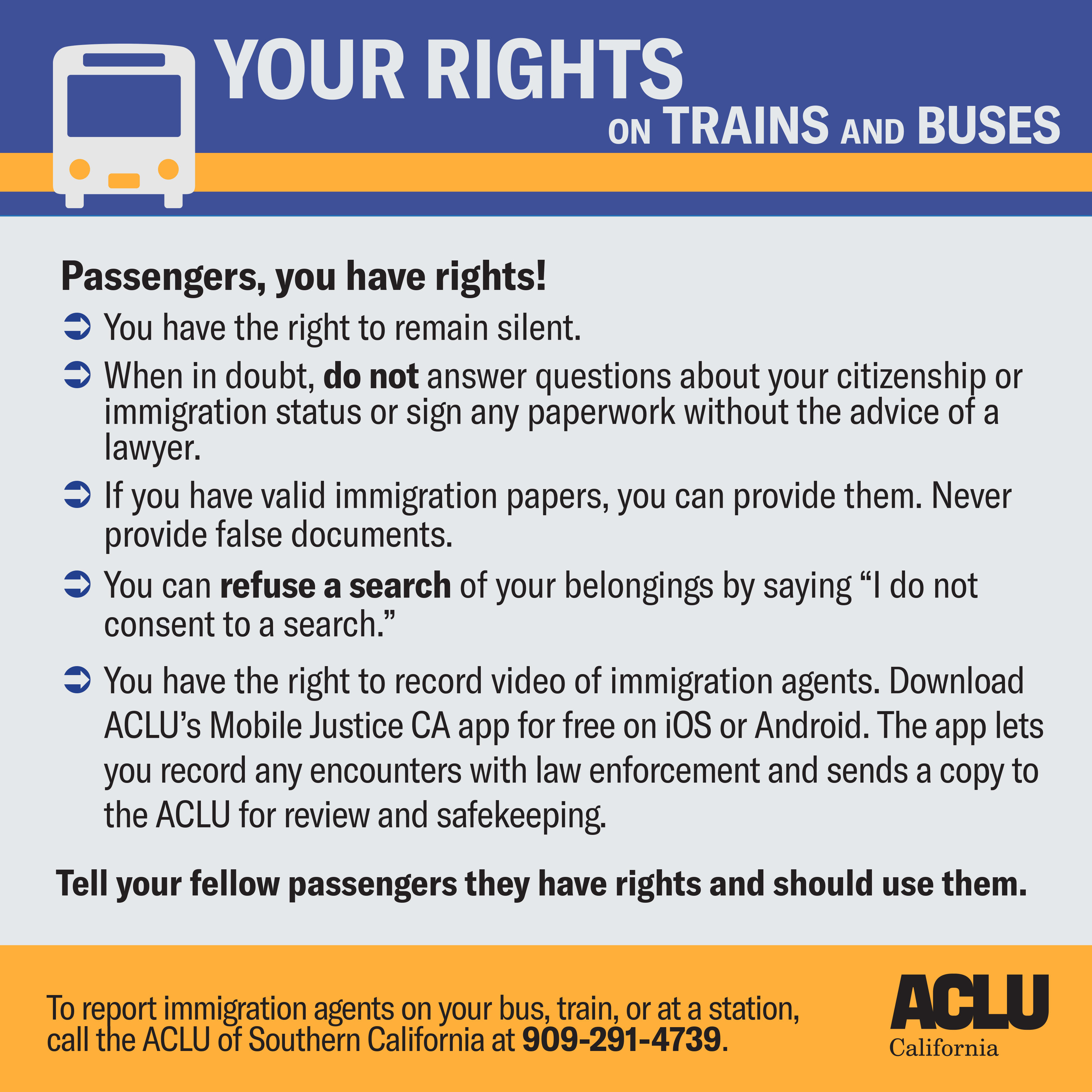
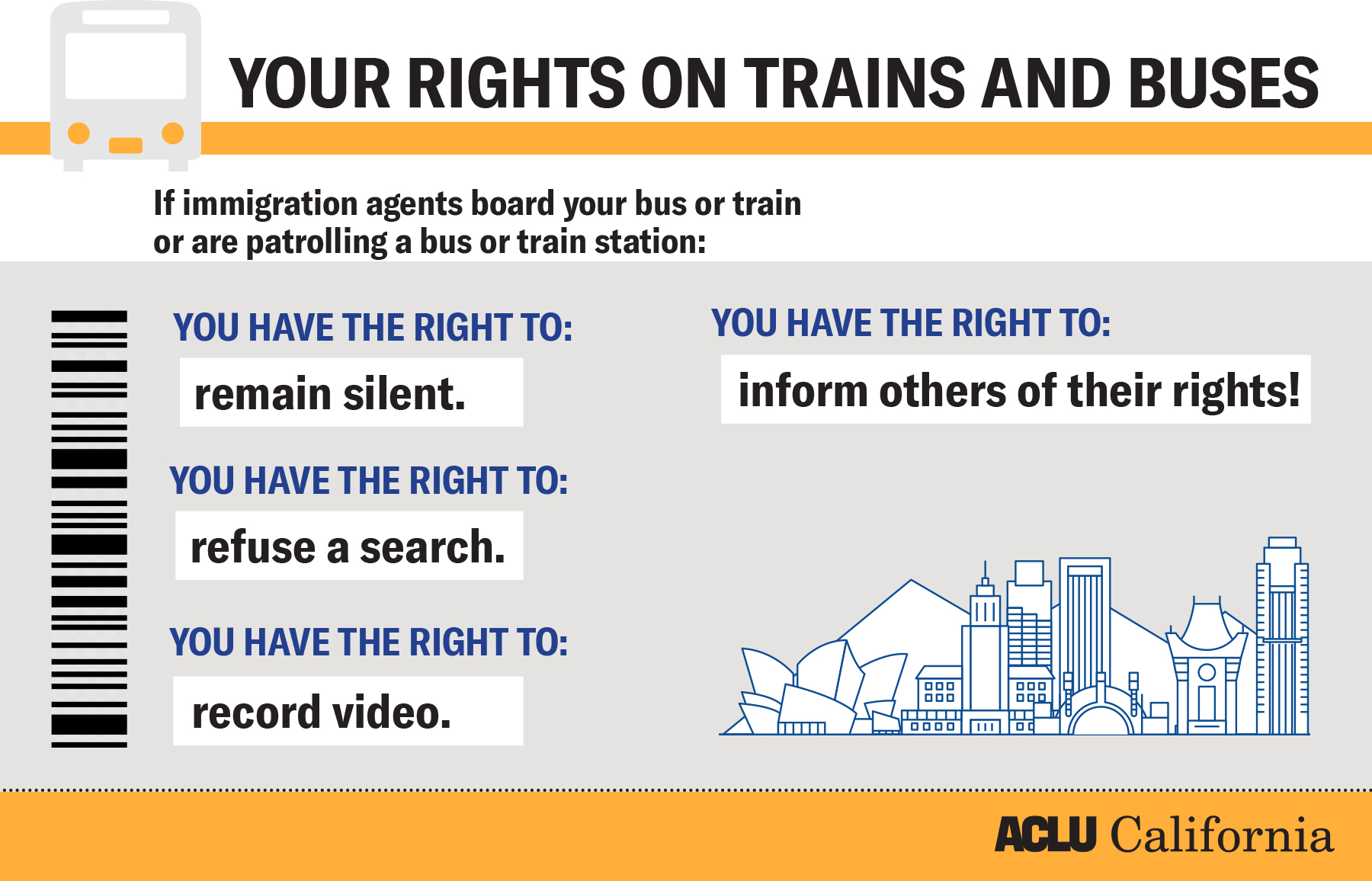
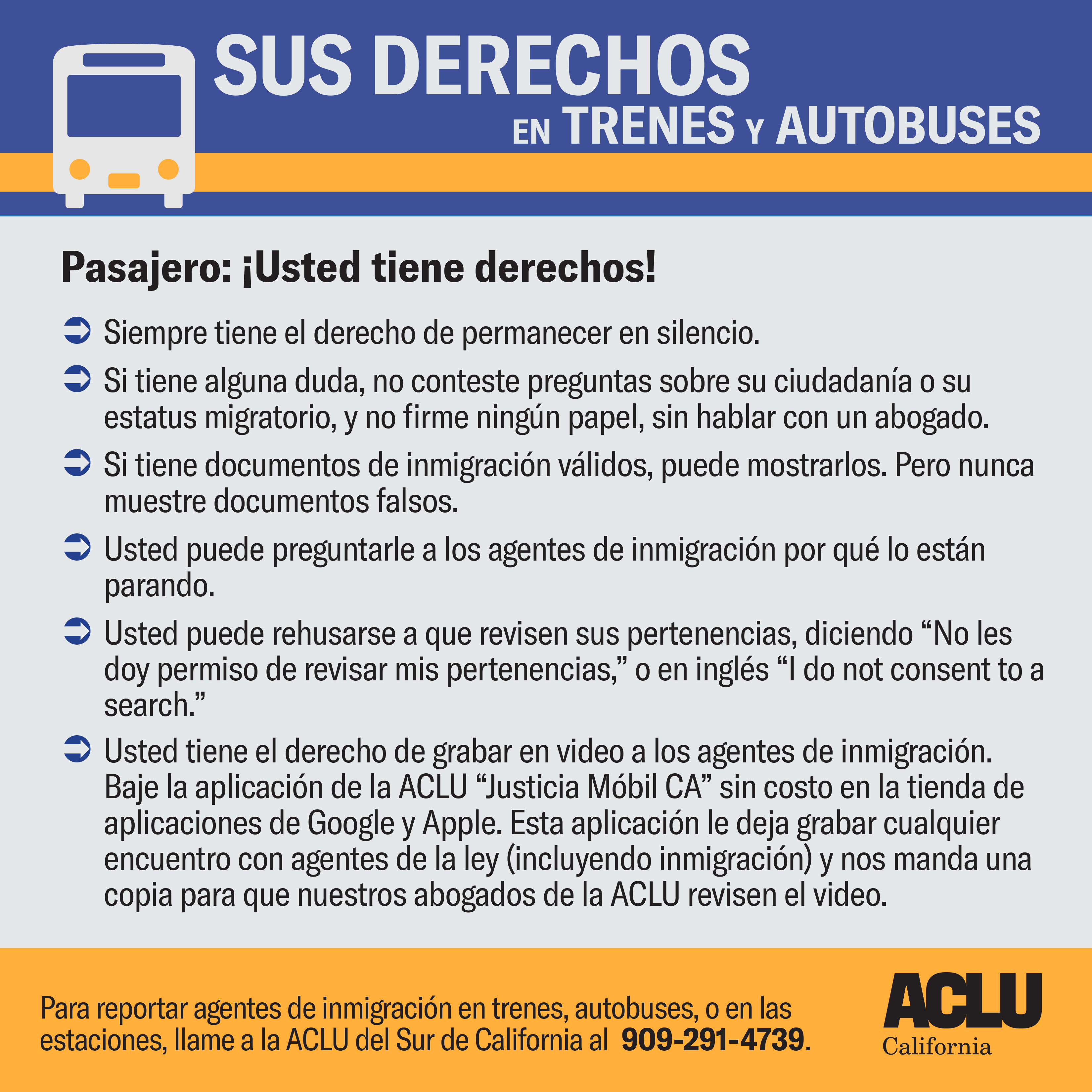
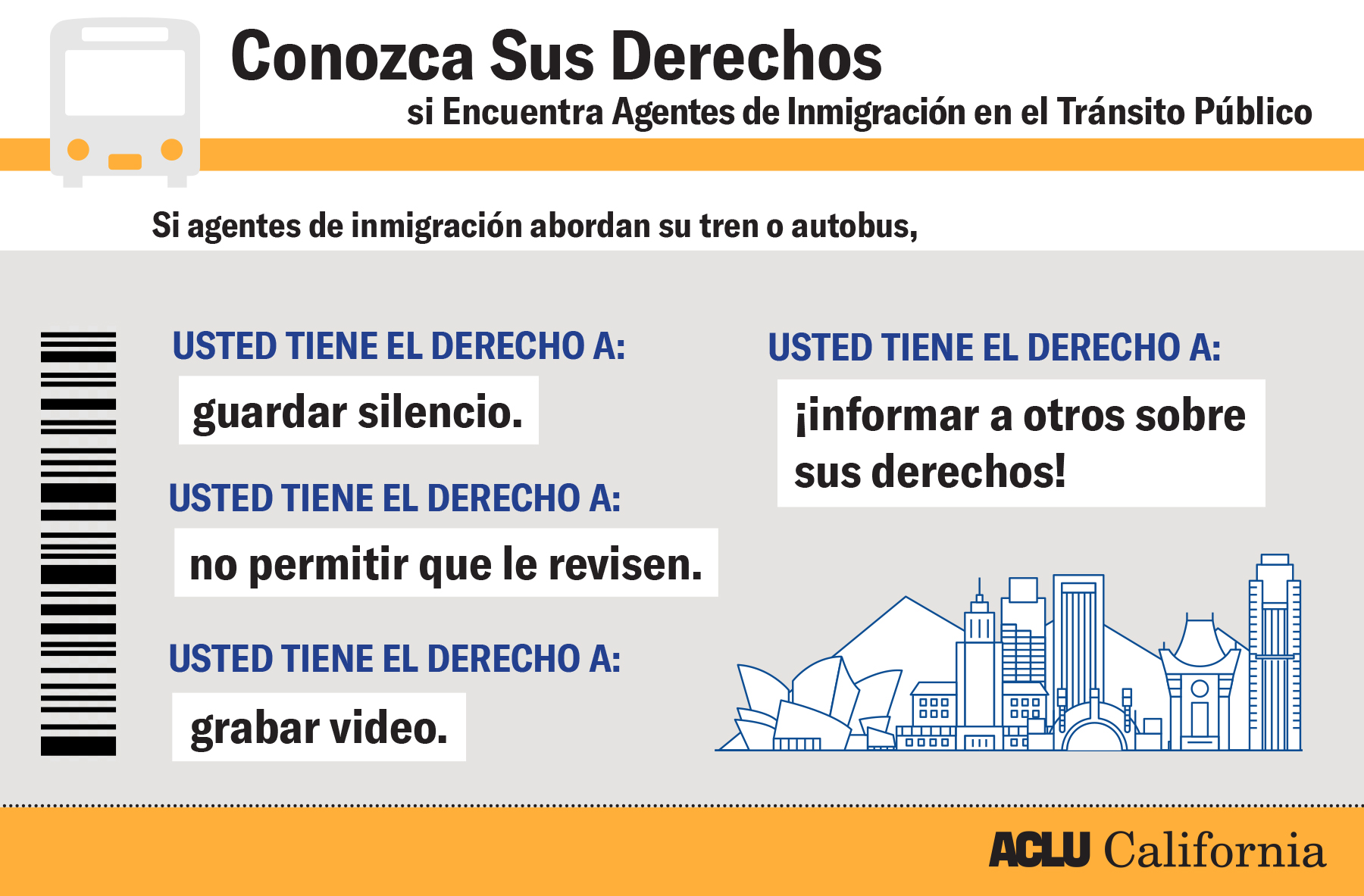
II. Greyhound Actions 101: How to Host an Event
In the past couple of months, the ACLU alongside many Immigrant Rights orgs have documented an increase sightings of CBP on Greyhound buses (See Appendix A for more stories across the U.S.) As a result of this increased activity, the ACLU is providing community members and leaders like yourself with the tools to help you fight back! This section will focus on how you can host your own action targeted at Greyhound to ensure all of their riders know their rights if they encounter CBP agents on board and the public education you can do with bus drivers about the legalities of CBP accessing these buses.
Step 1. Organize a team of Community Members who are interested in the issue (especially those who have been impacted by issues related to profiling with CBP or those who have been questioned while traveling).
Step 2. Read this Toolkit with your group and make sure to review it to cover any questions you may have about the content. Email Lnolasco@aclusocal.org with any questions.
Step 3. Watch the training webinar.
Step 4. Print out the KYR documents or find them on our site at aclusocal.org/kyr-onboard.
Step 5. Look at bus schedules on the Greyhound website or give a call to your local station to confirm times. This is to ensure that your local event is timed to coincide with a bus either arriving or departing to ensure the maximum number of travelers get this information.
Step 6. Create your event on People Power. People Power is the ACLU's platform for grassroots action. By mobilizing in defense of our civil liberties, volunteers will build and strengthen local communities that affirm our American values of respect, equality, and solidarity.
Step 7. Come up with a security plan for the event in case police or CBP question individuals. Create a way for allies (U.S. citizens) to distract law enforcement and ensure that any vulnerable individuals (undocumented folks and folks either on parole or probation) are out of the way and in a safe location out of harms way.
Step 8. Make sure that the ACLU team knows about your event and that you have all the materials ready. These are the leads for the various actions throughout Southern California:
Anaheim: Cynthia Valencia; CValencia@ACLUSOCAL.ORG
San Bernardino: Eva Bitran; EBitran@ACLUSOCAL.ORG
Los Angeles: Sandra Kang; SKang@ACLUSOCAL.ORG
Indio: Luis Nolasco; LNolasco@ACLUSOCAL.ORG
Step 9. Media for your event. In this toolkit you will find out sample talking points alongside a media release. If you want to coordinate your own action, please make sure you have a designated person in charge of talking to media (please make sure that they review the talking points and prep with someone from the ACLU SoCal before talking to press.)
Step 10. The day of the event make sure that your group has either recognizable t-shirts from your local group or color coordination alongside all the printed materials. Make sure you also bring with you a portable table to set up on a public sidewalk for distribution of materials. Set up on a public sidewalk or in a government-owned portion of the bus station, if applicable (rather than on Greyhound/private property), making sure to leave enough space for passers-by and passengers to pass.
Step 11. Engage with community at the Greyhound station about their rights & approach those individuals who are either waiting to board a bus or those who are stepping off from a bus. Feel free to adapt this sample script when engaging with individuals.
ENGLISH:
"Hello! My name is X and I am a volunteer with the ACLU of SoCal. We are out here today providing all Greyhound/Amtrak travelers with information about their rights regarding Border Patrol. We understand that there has been an increased number of sightings and we want to make sure that everyone knows their rights when and if they encounter immigration agents on their bus."
SPANISH:
"Hola! Mi nombre es X y soy un voluntario con la ACLU. Estamos aquí hoy para proveer información a todos los pasajeros de Greyhound/Amtrak sobre sus derechos si es que se encuentran con la Patrulla Fronteriza en su camión. Entendemos que ha habido un incremento en el número de testimonios sobre la Patrulla Fronteriza en camiones y queremos asegurar que todos los pasajeros conocen sus derechos si es que un agente de inmigración aborda su camión"
Step 12. Repeat these informational actions as desired. Email lnolasco@aclusocal.org to share the outcomes of your event and if you have plans to continue doing outreach at different greyhound stations or other methods of public transit. Encourage participants to sign and share the petition urging Greyhound to adopt policies to protect immigrant passengers: aclusocal.org/greyhound
III. ACLU Letter to Greyhound
See the full letter. This letter may be helpful in sharing with your local bus driver or Greyhound employees if they have questions about the legal authority that CBP may have if they want to board a bus.
Contrary to Greyhound's belief, there is no legal requirement that it allow CBP on its buses. Greyhound has a Fourth Amendment right to deny CBP agents access to their buses if CBP does not have a warrant. The only exception to this rule is at the actual border or at at a permanent border checkpoint.
IV. Talking Points
- Greyhound routinely permits Customs and Border Protection (CBP) agents to board its buses to question passengers about their citizenship and immigration status, and resulting in CBP agents removing passengers from buses and arresting them.
- CBP often singles out individuals because of the color of their skin or because they have a “foreign” accent.
- Often CPB does not give any reason, or a reason supported by probable cause, for questioning a passenger.
- CBP's intrusive encounters on Greyhound often involve a blatant disregard for passengers' constitutional rights.
- Greyhound's cooperation with CBP is unnecessarily facilitating the violation of its passengers' rights.
- Greyhound has a Fourth Amendment right to deny CBP permission to board and search its buses without a judicial warrant.
- Greyhound is in the business of transporting its passengers safely from place to place. It should not be in the business of subjecting its passengers to intimidating interrogations, suspicionless searches, warrantless arrests, and the threat of deportation.
- We urge Greyhound to change its policy and to refuse CBP permission to conduct invasive bus raids without a warrant.
V. Social Media Guide
Campaign hashtags
Petition
Right-click and select "Save Image As" to download the following social share images. Rectangle images look best on Twitter and Facebook, square images work best for Instagram.
Know Your Rights materials
VI. Appendix
Appendix A: Articles of reference on CBP presence in Public Transit
Below is a small compilation of stories, videos and reports of incidents throughout the United States that provide context for section II of this toolkit.
New York:
https://www.vox.com/policy-and-politics/2018/2/9/16974510/border-patrol-greyhound-bus-amtrak-train
Florida:
California:
http://www.kesq.com/kunamundo/inmigracin-en-las-estaciones-de-autobuses-en-indio/687805913
Washington:
Related Content
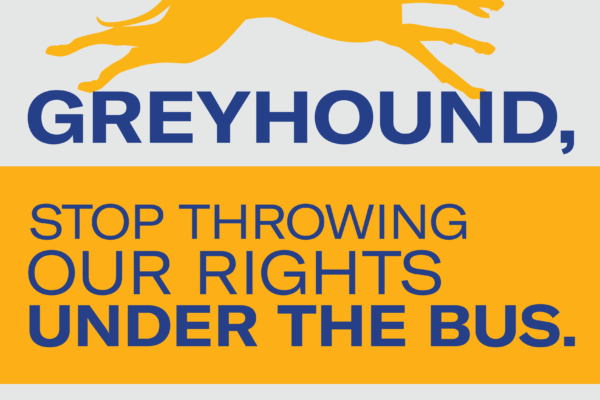
ACLU: Greyhound Must Stop Giving Border Patrol Permission to Conduct Bus Raids


